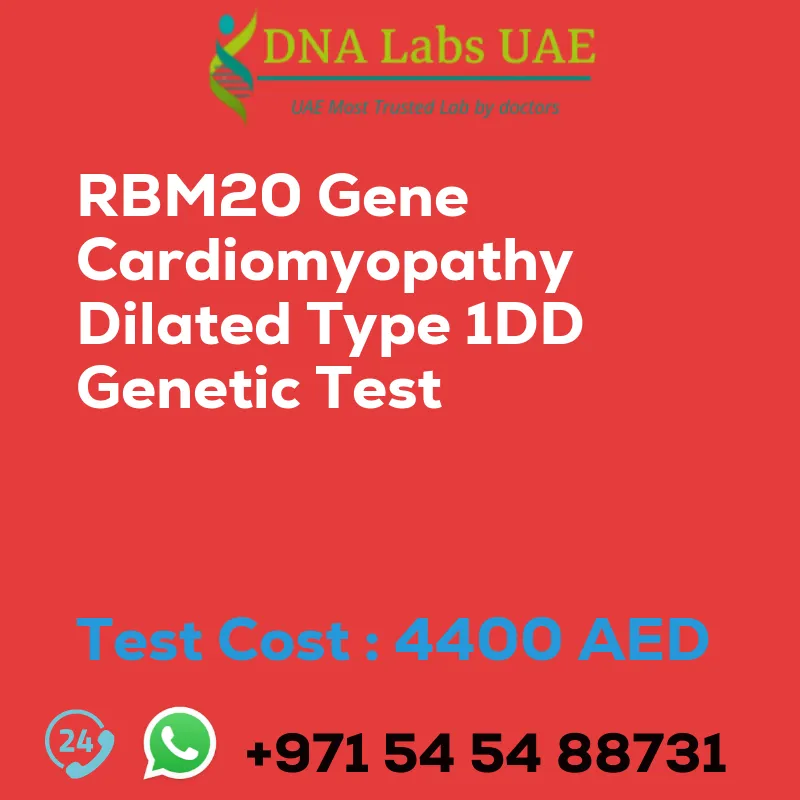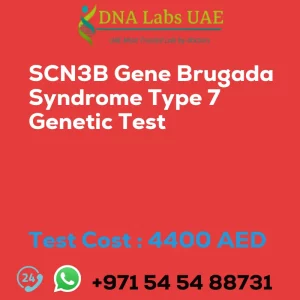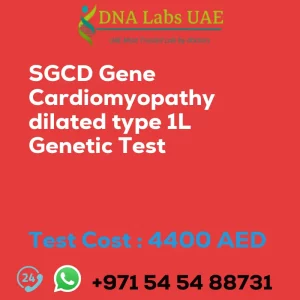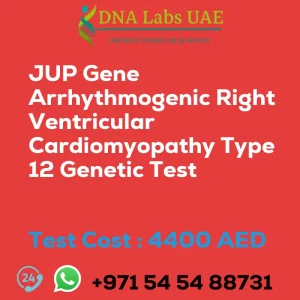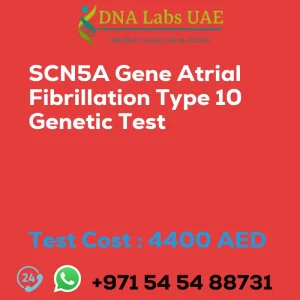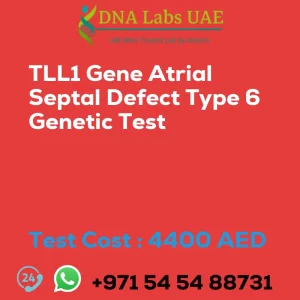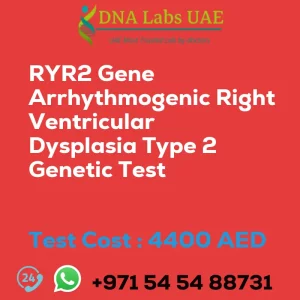RBM20 Gene Cardiomyopathy dilated type 1DD Genetic Test
Test Name: RBM20 Gene Cardiomyopathy dilated type 1DD Genetic Test
Components: Blood or Extracted DNA or One drop Blood on FTA Card
Price: 4400.0 AED
Report Delivery: 3 to 4 Weeks
Method: NGS Technology
Test type: Cardiovascular Pneumology Disorders
Doctor: Cardiologist
Test Department: Genetics
Pre Test Information: Clinical History of Patient who is going for RBM20 Gene Cardiomyopathy, dilated type 1DD NGS Genetic DNA Test. A Genetic Counselling session to draw a pedigree chart of family members affected with RBM20 Gene Cardiomyopathy, dilated type 1DD NGS Genetic DNA Test gene RBM20
Test Details: RBM20 gene cardiomyopathy, dilated type 1DD is a specific type of genetic disorder that affects the heart muscle. It is caused by mutations in the RBM20 gene, which provides instructions for making a protein involved in the regulation of cardiac muscle function. Individuals with RBM20 gene cardiomyopathy, dilated type 1DD may develop dilated cardiomyopathy, which is characterized by the enlargement and weakening of the heart muscle. This can lead to symptoms such as fatigue, shortness of breath, chest pain, and heart palpitations. In severe cases, it can result in heart failure or sudden cardiac death.
NGS (Next-Generation Sequencing) genetic testing is a method used to analyze an individual’s DNA to identify genetic mutations or variations. In the case of RBM20 gene cardiomyopathy, dilated type 1DD, NGS genetic testing can detect mutations in the RBM20 gene to confirm the diagnosis. This type of genetic testing is typically performed using a blood sample or a saliva sample. The DNA is extracted from the sample and then sequenced using NGS technology. The resulting sequence data is then analyzed to identify any mutations or variations in the RBM20 gene.
NGS genetic testing for RBM20 gene cardiomyopathy, dilated type 1DD can help with the diagnosis of the condition, as well as provide information about the risk of developing symptoms or passing on the condition to future generations. It can also be used to guide treatment decisions and inform genetic counseling for affected individuals and their families.
| Test Name | RBM20 Gene Cardiomyopathy dilated type 1DD Genetic Test |
|---|---|
| Components | |
| Price | 4400.0 AED |
| Sample Condition | Blood or Extracted DNA or One drop Blood on FTA Card |
| Report Delivery | 3 to 4 Weeks |
| Method | NGS Technology |
| Test type | Cardiovascular Pneumology Disorders |
| Doctor | Cardiologist |
| Test Department: | Genetics |
| Pre Test Information | Clinical History of Patient who is going for RBM20 Gene Cardiomyopathy, dilated type 1DD NGS Genetic DNA Test. A Genetic Counselling session to draw a pedigree chart of family members affected with RBM20 Gene Cardiomyopathy, dilated type 1DD NGS Genetic DNA Test gene RBM20 |
| Test Details |
RBM20 gene cardiomyopathy, dilated type 1DD is a specific type of genetic disorder that affects the heart muscle. It is caused by mutations in the RBM20 gene, which provides instructions for making a protein involved in the regulation of cardiac muscle function. Individuals with RBM20 gene cardiomyopathy, dilated type 1DD may develop dilated cardiomyopathy, which is characterized by the enlargement and weakening of the heart muscle. This can lead to symptoms such as fatigue, shortness of breath, chest pain, and heart palpitations. In severe cases, it can result in heart failure or sudden cardiac death. NGS (Next-Generation Sequencing) genetic testing is a method used to analyze an individual’s DNA to identify genetic mutations or variations. In the case of RBM20 gene cardiomyopathy, dilated type 1DD, NGS genetic testing can detect mutations in the RBM20 gene to confirm the diagnosis. This type of genetic testing is typically performed using a blood sample or a saliva sample. The DNA is extracted from the sample and then sequenced using NGS technology. The resulting sequence data is then analyzed to identify any mutations or variations in the RBM20 gene. NGS genetic testing for RBM20 gene cardiomyopathy, dilated type 1DD can help with the diagnosis of the condition, as well as provide information about the risk of developing symptoms or passing on the condition to future generations. It can also be used to guide treatment decisions and inform genetic counseling for affected individuals and their families. |

